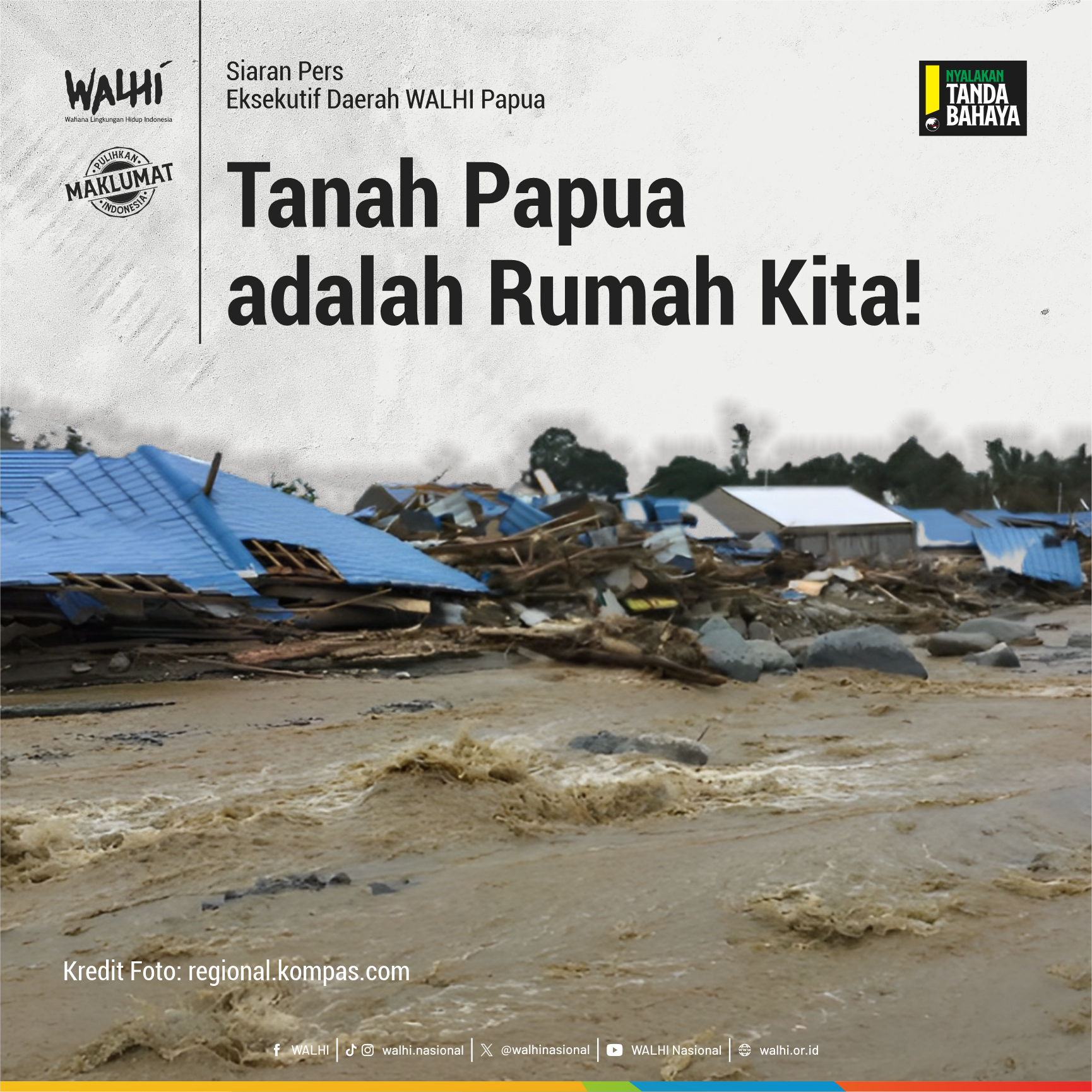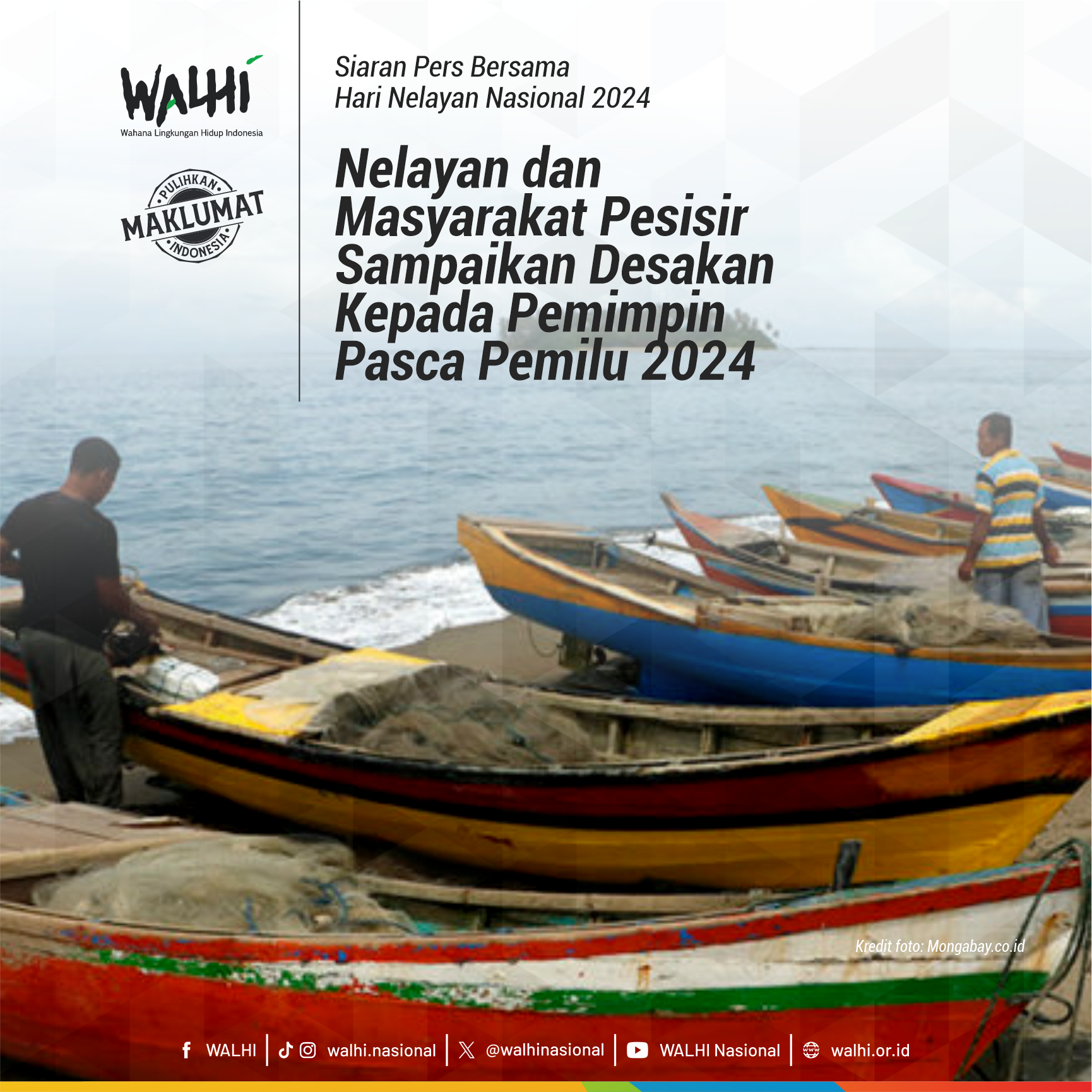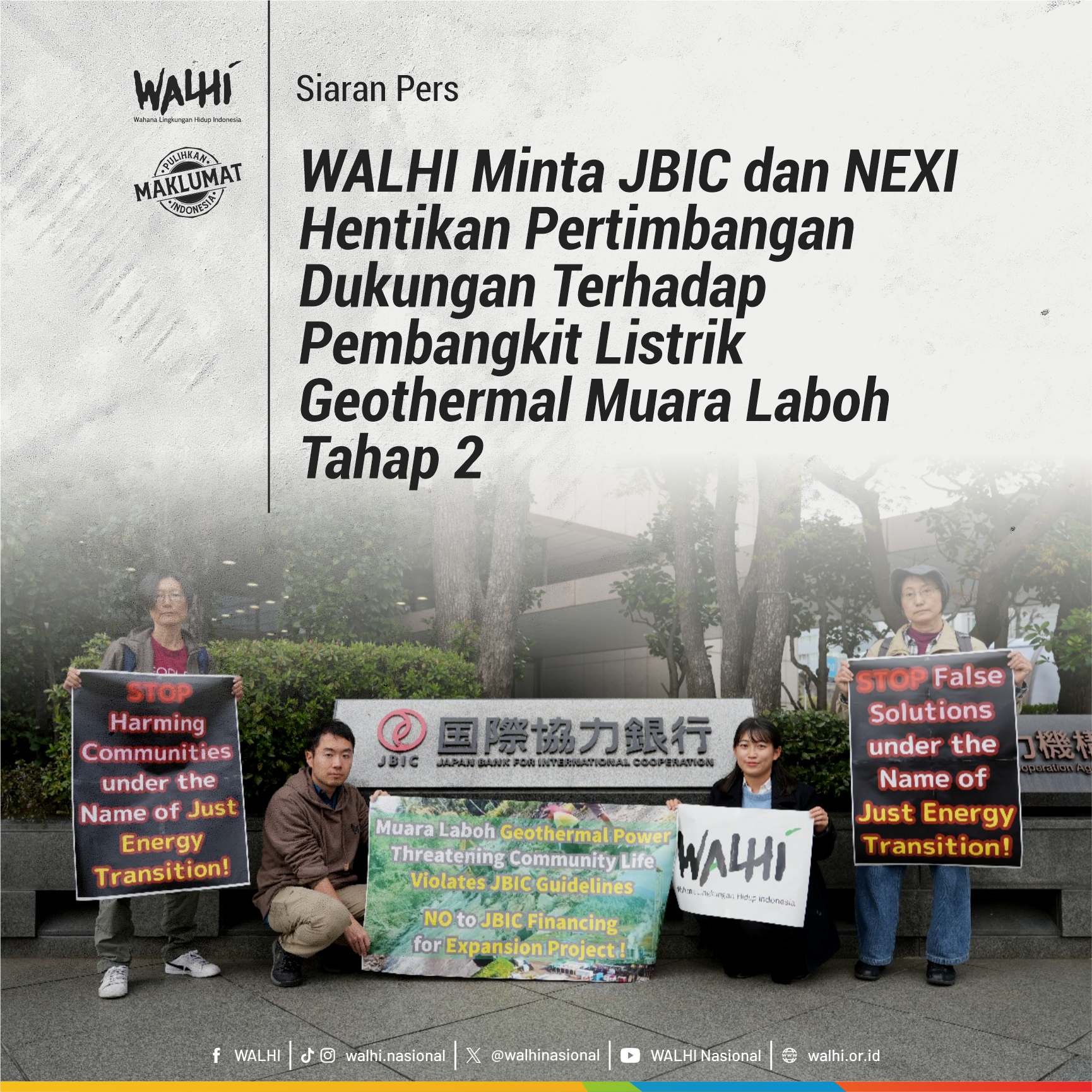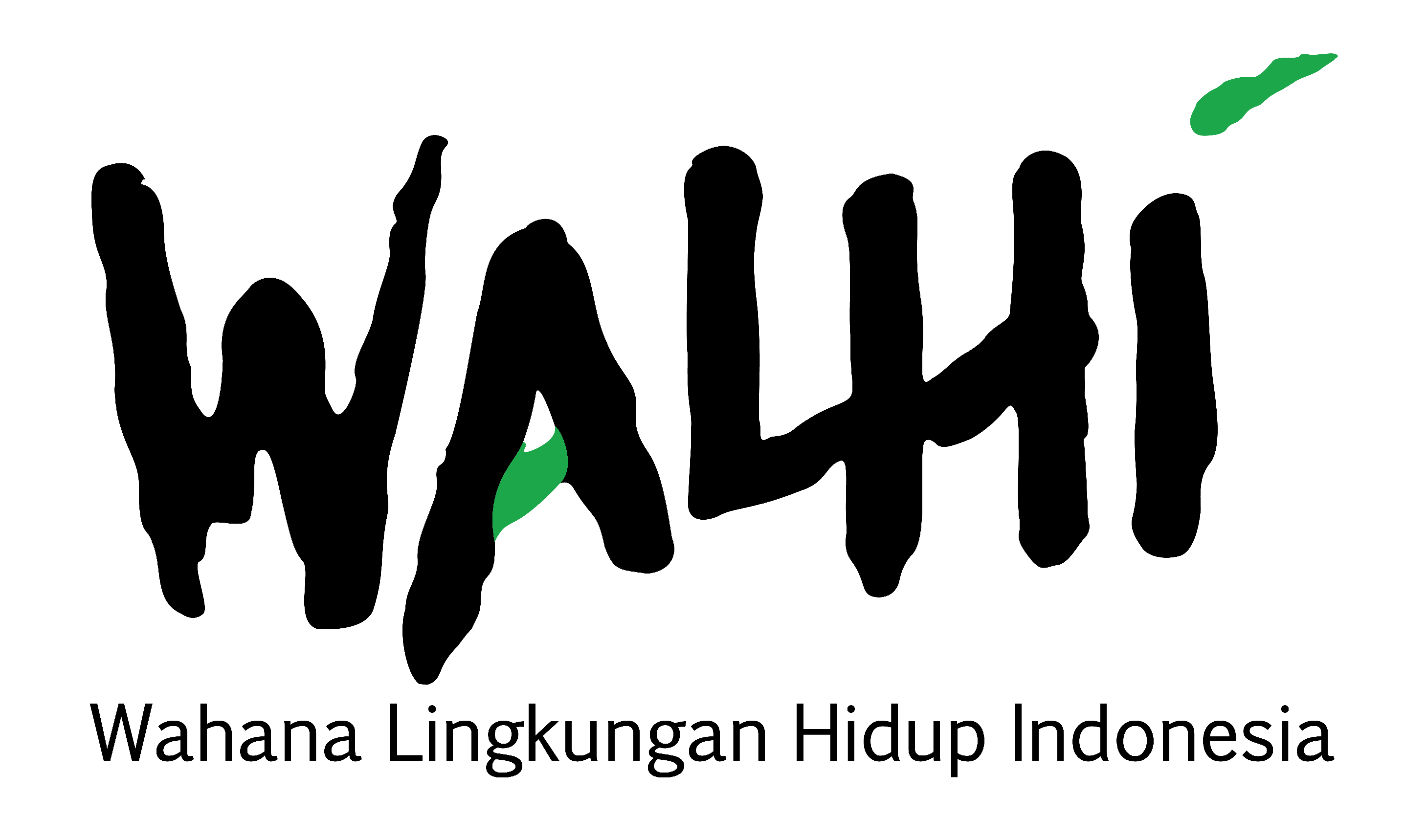Every May 29, Civil Society Organizations commemorate the anti-mining day. The day that became a reminder when Lapindo mudflow to this day still leaves the people in suffering. This year is exactly 11 years of Lapindo mudflow tragedy, which is a reminder that the mining dredger industry or fossil fuel that is the mainstay of the government actually produces various problems that continue to occur. Not only economic losses or loss of living space, even this voracious industry of land and water has also become a deadly industry for children in East Kalimantan. Besides in Jakarta, the voice to call for an end to the deadly industries is also carried out in various provinces, among others by WALHI East Java, WALHI South Kalimantan, WALHI Yogyakarta, WALHI West Java, WALHI North Sulawesi, and WALHI East Nusa Tenggara with Various activities including demonstration, discussion, photo exhibition, and the launching of a film about bad portrait of coal mining in South Kalimantan. On the anniversary of the anti-mining day and 11 years of Lapindo mudflow case, WALHI East Java has urged the state and government to start re-reading the Lapindo case settlement scheme by including the fulfillment of Lapindo victims' rights as the mainstream issue that must be completed. It is the duty of the state to ensure that every citizen gets their rights.
The link to WALHI East Java press release http://walhijatim.or.id/2017/05/dampak-multidimensional-11-tahun-kasus-semburan-lumpur-lapindo/ Nevertheless, the country's economic and development policies have not changed. The dredging industry, which comes and goes by the name of mining continues to be the "primadona (the favorite)" of the economy in the name of economic growth. This can be seen from the RPJMN 2014-2019, the construction of 35,000 megawatts of steam power plant, mostly still supported by coal dirty energy, also on behalf of domestic energy fulfillment needs. Though the facts in front of the eyes show, that the energy barn areas experience power outages frequently (byarpet)! Where does energy from the power plant go? The government is clearly aware of the bad practices of the dredging industry such as coal and its impact on society and the environment. Unfortunately, the Vice President has said that "coal is bad, but that's cheap".
Coal has always been considered the most inexpensive source of energy to support this nation's development since environmental losses from pollution, economy, social and culture have never been considered by the state. In the end, the state has always been a part of destroying the living space of its citizens through licenses issued to mining companies, both domestic and foreign. After the large islands are mined, the mining industry is now targeting small islands. Bad portrait of the mining and law enforcement are highlighted on this anti-mining day. Recalling the state's obligations into a strong urge on the anniversary of the anti-mining day of 2017, especially the Jokowi-JK government that has entered its three-year reign. WALHI National Executive and Regional Executive along with the Mining Advocacy Network and other civil society organizations are urging the Government to immediately terminate and leave mining extractive industries for both energy and economic sustainability and immediately turn to sustainable and equitable renewable energy for the people and the environment. This is the opportunity, if the Government is not using this momentum, then the future of the children of this nation will be gloomier.






